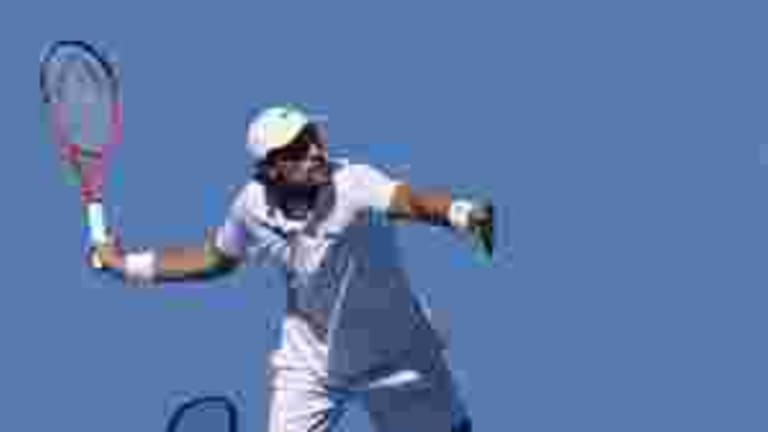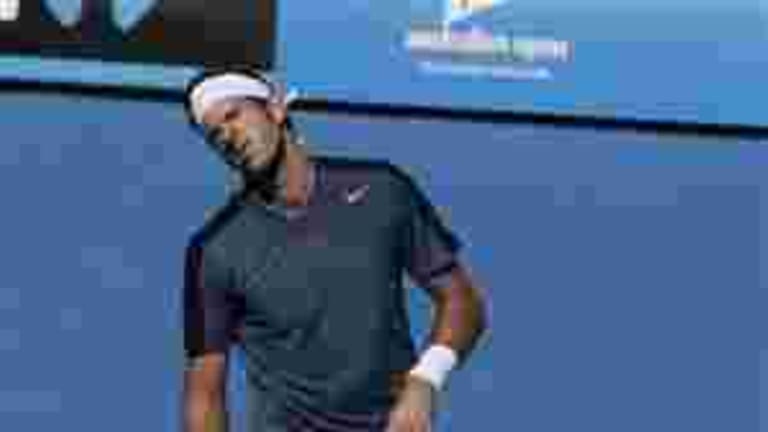MELBOURNE—“I was a little bit scared coming onto the court,” Jeremy Chardy said just before he walked off of it today. He could have fooled us. If the Frenchman felt any fears in facing No. 6 seed Juan Martin del Potro, he did an excellent job of ignoring them. Or channeling them. For nearly three sets, Chardy played like a man without a care or a problem in the world, or an anxious bone in his wiry body. And when he did finally succumb to his doubts, at the tail end of the third set, he did so only temporarily. It took Chardy a couple of hours longer than it might have, but he was playing too well to lose today.
The reason Chardy was scared was that del Potro, as the post-match interviewer in Hisense Arena reminded Chardy today, had “given him a hiding” the only other time they had played, last summer in Cincinnati. Chardy laughed and nodded—“He killed me,” he agreed. But while his 6-3, 6-3, 6-7 (3), 3-6, 6-3 win today is the upset of the tournament so far, anyone who saw much of it wouldn’t have been surprised by the result. Not when Chardy was stepping around and killing forehand after forehand with a mix of the blistering and the insouciant. He finished with 78 winners, 44 from the forehand side. Del Potro, he of the futuristically lethal version of that shot, managed only 12.
Chardy credited his pre-match strategy, and his lack of deviation from it even when things got dicey, for the result.
“My tactic was very simple,” Chardy said. “I play slice with my backhand, and I try to play short slice because like this he has to come in the court. After, with my forehand, I can go full power.”
There was “nothing else” to it, he admitted with a laugh. It may have seemed like nothing, but the the short slice backhand and runaround forehand is a one-two punch that Roger Federer has used to very good effect against del Potro over the years. The trouble for players with two-handed backhands, as Chardy alluded to, is having the discipline to stay with the slice, which is never their first choice or their best shot from that side.
It was a simple tactic, but it was mesmerizing in its way. Chardy’s topspin forehand grip can make that shot erratic, and when he missed today, he missed big, as in 20 feet long big. But as he said, despite finishing with 64 errors, nothing discouraged him. Chardy was so dialed in that he slapped forehand winners while still backpedaling and before getting his feet set. When del Potro tried to run him to his right along the baseline, Chardy belted the ball past him down the line. By the end of the third set, the Frenchman went from clipping the lines to clipping the outside of the lines. He did it often enough that you really did wonder if that’s where he was aiming.
Del Potro got off to a sluggish start and called the trainer at one stage, though he said later that there was “not any problem.” He was testy at certain points, and he never found his forehand. But he was also able to laugh at his troubles. After one long, unsuccessful run to track down a ball, del Potro jumped the barrier at the side of the court, ran all the way up to the stands, and put his head down in front of the spectators in the front row. For American football fans, it was kind of an anti-Lambeau Leap, done for commiseration rather than celebration.

